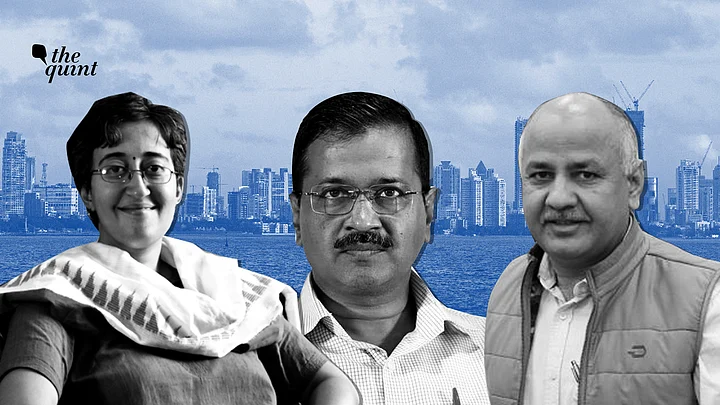Emboldened by their sweeping victory in the 2020 Delhi Assembly elections, the Aam Aadmi Party (AAP) is now aiming to assert its presence in several other states. Maharashtra, too, is on their radar. With hopes renewed by their win in the national capital, AAP has decided to fight all forthcoming local elections. They will be starting by fielding candidates in the upcoming Navi Mumbai civic body polls that will be held in 2020.
AAP’s Future Strategy in Maharashtra
“We’ve been at the forefront of the anti-corruption fight over here in Maharashtra but we were not politically active. Now, we think that we will make a small start by fighting local elections. Perhaps not all, but in areas where we’re stronger. Immediately forthcoming is the Navi Mumbai Municipal election, where we hope to field, I think, nearly all candidates.”Preeti Sharma Menon, Spokesperson, AAP
“It's just a start, a very small start. State politics is very different. There are many powerful parties here. It's not a two-party fight, it's not a triangular fight, it's a very big one,” added AAP spokesperson Preeti Sharma Menon.
AAP failed to make their mark in the Maharashtra Assembly elections in 2019. Their candidates lost in all the 24 seats they were contesting from and revival is likely to be an uphill task. Social activist and former AAP leader Anjali Damania feels starting at the grass root level is a strategy that AAP should have led with in Maharashtra.
“AAP had probably not gone the right away initially. We should have started from the Municipal Corporation election and then graduated to the Assembly and then to the Lok Sabha, but everything happened so very quickly that we couldn’t focus much at the grass root level. There was a huge influx of all sorts of people, 90 percent of them were good but the rest 10 percent were not the right type of people also. We didn’t have the time to even segregate and get the right people on board.”Anjali Damania, Social activist
Hoping to cover the geographic and cultural diversity of the state that consists a vote bank ranging from the farmers in Marathwada and Vidarbha to professionals in Mumbai, AAP plans to cover their bases by electing their leaders accordingly.
“Maharashtra has two conveners. We have Ranga Rachure, who is a former leader, a convener from Marathwada, and we have Kishore Mandhyan, an ex-United Nations diplomat, who is a co-convener from Mumbai. So, I think we will cater to different people by giving them, representative leaders. I don't think, in Maharashtra, one can go with one face; it has always been a place with multiple leaders and that's how we hope our parties grow too,” said Menon.
‘AAP Lacks a Connect with Masses in Maharashtra’
While AAP managed to connect with the pulse of Delhi, it hasn’t quite been able to work the same magic in Maharashtra in the past. Political analyst Surendra Jondhale attributes AAP’s lack of visibility as one of the key reasons for this.
“They have been associated with civic society activities and have been whistle blowers, but they don’t have any roots in Maharashtra. Most of them have got urban backgrounds. AAP in Maharashtra is an urban phenomenon. In Pune or Aurangabad where they are active, they are just well-intentioned citizens. Their political perception is very weak, and they haven’t offered any programmes that could make them more appealing for masses in Maharashtra. So, how will they connect with rural masses?”Surendra Jondhale, Political Analyst
Jondhale believes that AAP should take up civic issues to make its presence felt in Mumbai.
“Mumbai has similar civic issues like Delhi. Look at the municipal schools in Mumbai. Go to hospitals like KEM, JJ and Wadia. Mankhurd has a lot of garbage. There is sanitation problem, roads, transport. There are many issues,” says Jondhale.
Damania seconds this. AAP’s overhaul of the education and healthcare systems in Delhi earned them a thumbs up from the people of Delhi. Replicating their development model with tweaks to fit in Mumbai’s requirements, could work for the Arvind Kejriwal led party in the state.
“The current state of the government schools, the hospitals is pathetic. They should have focused on identifying these things; small things like pavements, the encroachments. All these things they should have worked on; created a tempo and then gone in for the elections. Probably, everything just didn’t go the right way which they should have. Now they are probably looking at that the right way and I wish them luck.”Anjali Damania, Social activist
While the Aam Admi Party still has a long way to go before sweeping Maharashtra into its folds, the step to get there seems to have already begun.
(At The Quint, we question everything. Play an active role in shaping our journalism by becoming a member today.)
